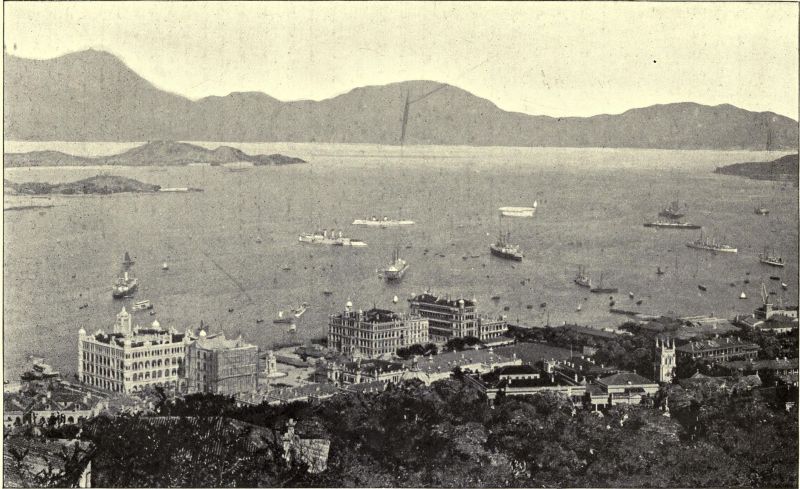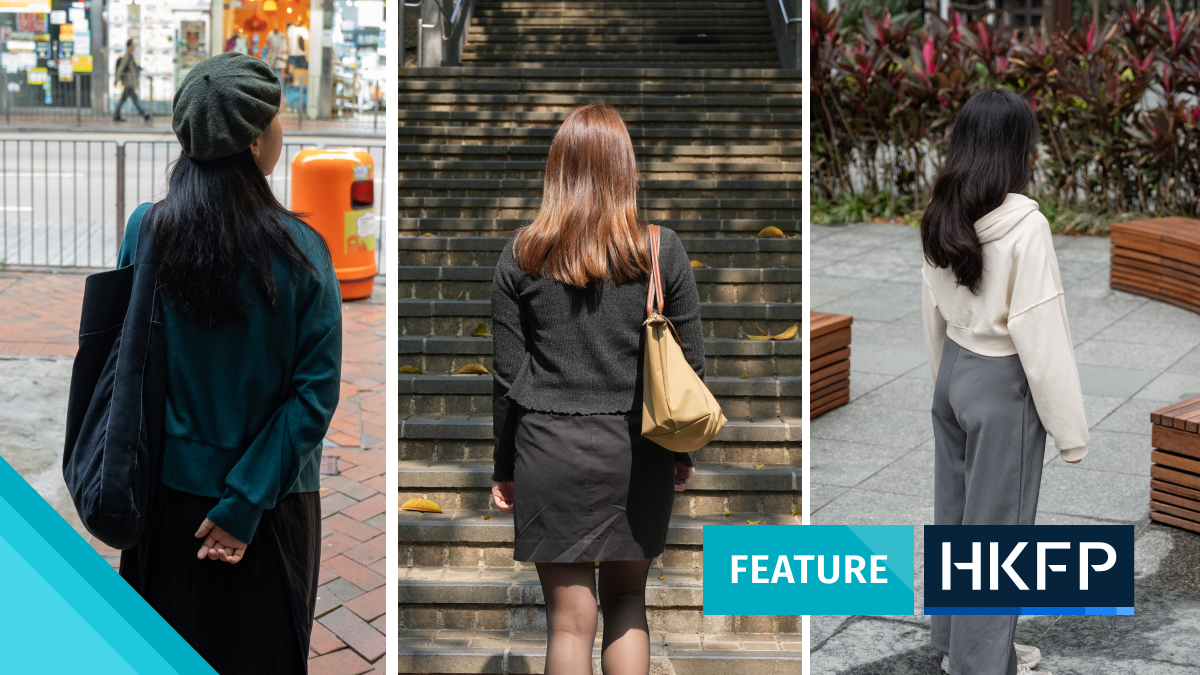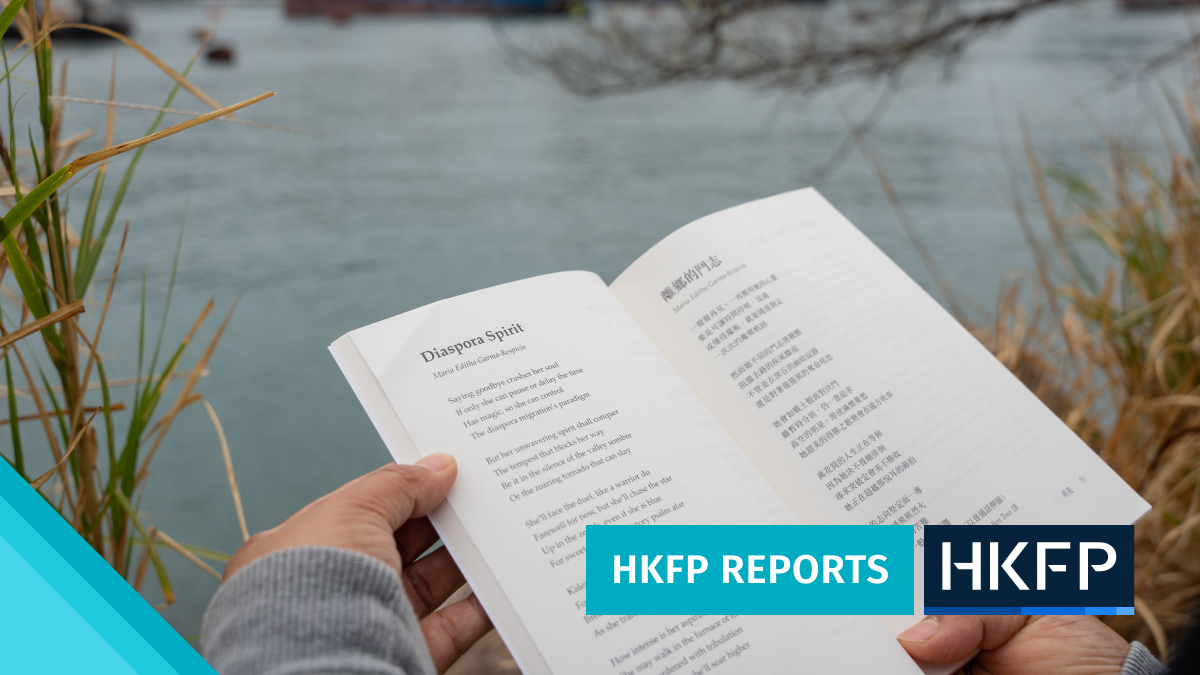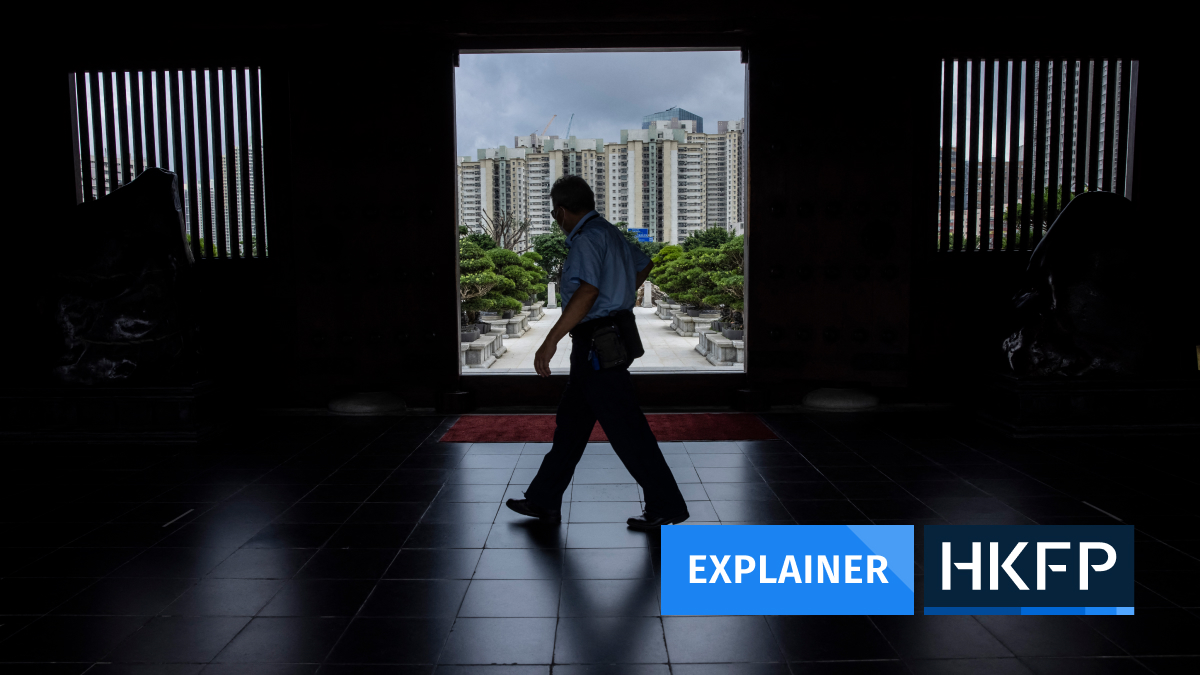Hong Kong is often discussed in terms of dichotomies, positioning East against West, old against new, British against Chinese. But for journalist-turned-historian Vaudine England, it is the spaces in-between, and the people that occupy them, that are interesting, as she discussed in the latest episode of HKFP Yum Cha.

In her book, Fortune’s Bazaar: The Making of Hong Kong, which was published in May, England traces some of the many human interactions that shaped the city’s early decades. The families she follows – among them Armenians, Parsis, and Russians – came from across Eurasia to settle in and help build Hong Kong, both figuratively and literally. Several have left a permanent mark on its infrastructure, their names adorning street signs, hospitals and university lecture halls.
England’s interest in Hong Kong’s lesser-known origins took root when she encountered amateur archivist Carl Smith, a friend of her parents, in the late 1970s.

Chankalun – A Bright Future for Hong Kong's Neon Heritage – HKFP Yum Cha
- Chankalun – A Bright Future for Hong Kong's Neon Heritage
- Carol Liang – Happy Hong Kong?
- Astrid Andersson – Wildlife Trade and Alien Invaders
- Xyza Cruz Bacani – Migrant Domestic Workers and the Children Left Behind
- Cynthia Cheng and Maxime Vanhollebeke – An Invisible Web of Workers
- Vaudine England – A City Between East and West
- Regina Ip – Matters of Security
- Emily Lau – Fighting Two Tigers
Apple | Spotify | Google Podcasts | Stitcher | Overcast | Amazon Music | Pandora | RSS
“He had this apartment in Mei Foo and it was not huge, but every single wall was covered with those little drawers that are built just the size for index cards… and basically there was an index card on just about every individual who had lived in Hong Kong from the beginning,” England told HKFP earlier this year from her home in the Netherlands.
She was, at the time, starting out as a journalist, and beyond “transcribing tapes, or something or other, or trying to decipher his notes,” did not want much to do with Smith’s extensive records. “I do recall that my mum did say to me at one point, she said if nobody else takes control of this you know you’re gonna have to deal with Carl’s cards… It wasn’t what I was looking to hear that time in my life.”
Over the years, however, those cards proved their worth as a valuable historical reference, for England and for others. “Carl Smith is the first and most fundamental starting point for anybody who wants to know the the genuine history of Hong Kong, not just only from the ground up, but from the point of view of Hong Kong,” England said.
“What you decide is the history of a place really depends on where you stand,” she added.

In Fortune’s Bazaar, England writes that Hong Kong’s history is being “disputed.” In recent years, the Education Bureau has approved school textbooks that state Hong Kong was never a colony, while Chief Executive John Lee in May told a reporter that the pro-democracy demonstrations and unrest of 2019 should be referred to as the “black violence,” not “protests.”
“Every country rewrites [its] history, all of the time,” England said.
“Clearly in Hong Kong it’s highly politicised now… its much tougher if you want to say something different to the official narrative,” she said.
It was her intention with Fortunes Bazaar not to rewrite history, though, but flesh it out. And in many ways, a handful of women in 19th-century Hong Kong, and the mixed-race children they raised, were her starting point.
“It goes back to four women who worked very hard,” England said. Their stories have gone largely untold, in part because they were likely illiterate and thus unable to document their role in the making of Hong Kong. “We don’t have their voice,” England said. But, she added, there was a “larger problem,” and it lay in the histories of some of Hong Kong’s most powerful families.
“I think there’s a larger problem, and it’s also why this whole history of how these clans began, i.e. it began with sex with a local woman. Why it was so often and for so long ignored is… both racist and misogynist, that these people don’t matter, whereas in fact of course, they’re central to the business,” England said.
“But, of course, it’s not that the women had any choice. It’s not like they’ve sat back in China and thought: ‘Oh, I think I’ll go and be a sex worker in Hong Kong and get ahead.’ You know, I mean a large majority of them were trafficked in the first place into Hong Kong and had very, very little freedom of manoeuvre.”

But there were some who, in England’s words “managed to get through it and who – through their sons and sometimes daughters – were able to kind-of-triumph over all these impediments,” and their achievements help build Hong Kong into what England calls “an Asian city.”
“It was a link in this chain of Asian port cities, it grew out of the long, pre-established trade routes right through Middle East, across through South Asia, through Southeast Asia, and along the way you get port cities founded,” England said.
She continued: “So this whole idea, that when whoever wants to say, ‘Oh Hong Kong has always been a Chinese city.’ Well, I mean yes, there’s been an awful lot of Chinese in it, but is that its essential character? It’s part of it, it’s not the whole story. It’s an Asian city, and it’s an Asian hub.”
HKFP Yum Cha
New episodes of HKFP Yum Cha are published on Saturdays. The first season will feature a diverse range of voices, from artists to scientists, who share their perspective on Hong Kong as it is today through the lens of their industry.
Listen and subscribe wherever you get your podcasts.
Support HKFP | Policies & Ethics | Error/typo? | Contact Us | Newsletter | Transparency & Annual Report | Apps
Help safeguard press freedom & keep HKFP free for all readers by supporting our team

Original reporting on HKFP is backed by our monthly contributors.
Almost 1,000 HKFP Patrons made this coverage possible. Each contributes an average of HK$200/month to support our award-winning original reporting, keeping the city’s only independent English-language outlet free-to-access for all. Three reasons to join us:
- 🔎 Transparent & efficient: As a non-profit, we are externally audited each year, publishing our income/outgoings annually, as the city’s most transparent news outlet.
- 🔒 Accurate & accountable: Our reporting is governed by a strict Ethics Code. We are 100% independent, and not answerable to any tycoon, mainland owners or shareholders. Check out our latest Annual Report, and help support press freedom.
- 💰 It’s fast, secure & easy: We accept most payment methods – cancel anytime, and receive a free tote bag and pen if you contribute HK$150/month or more.
MORE Original Reporting
HKFP has an impartial stance, transparent funding, and balanced coverage guided by an Ethics Code and Corrections Policy.
Support press freedom & help us surpass 1,000 monthly Patrons: 100% independent, governed by an ethics code & not-for-profit.










